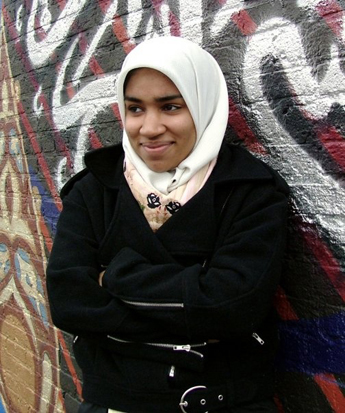
Fathima Khan remembers the incident that galvanized her sense of justice. In October 2006 Khan attended the Chicago trial of a high school friend's father, Muhammad Salah, who was arrested in 1993 in Israel for allegedly aiding Hamas.
"He was said to be aiding terrorists in Palestine. He was put in an Israeli prison and forced to sign a confession in Hebrew, a language he did not understand," Khan says of Salah, who pleaded guilty in Israel in 1995 to helping fund Hamas.
Salah, a naturalized U.S. citizen who was born in Ramallah, Palestine, returned to the United States in 1997 after serving 4½ years in an Israeli prison. He was placed on a U.S. government list of terrorists and later indicted in August 2004 on charges of racketeering, providing material support to a terrorist organization and obstruction of justice.
"He was brought to trial here, in the United States, after he had already served time for a crime he did not commit," Khan says.
A U.S. federal jury found Salah not guilty of racketeering in 2007, and the terrorism charge had been dropped during the trial. He was convicted on one count of obstruction of justice for lying in a civil lawsuit and sent to prison for 21 months.
"Watching the trial, I was angered that justice was definitely not being served and that a man was being persecuted based on his religion and ethnicity," Khan recalls.
Khan, of Lansing, Mich., had considered becoming a human rights lawyer but decided human rights cases might hit too close to home. "A lot of human rights violations are done to people who are very much like me, who are Muslim or Indian or Arab, and I do not think I would be able to uphold any kind of semblance of objectivity as far as human rights law goes. Environmental law works well for me."
Khan, who was a premed major for three years, eventually decided to switch to creative nonfiction and focus on law school.
"I began college as a premed major with the sole intention of training myself to help people," Khan says. "At its most basic level, medicine helps people, and that appealed to me.
"I also see creative nonfiction as a way to really effect change. I think it's an excellent device for showing humanity that we have much more in common than we have in contrast. I realized it would be a stretch to meld my love for English and writing with my desire to help people through medicine. Luckily, there is law."
Khan, who is Muslim, says her specific interest in environmental law, which she plans to study at Michigan State University, originated from Islam's teaching of environmental consciousness.
"Islam began in the desert, and the thought of having plentiful water all the time was beyond their wildest imagination," explains Khan. "One of the first things taught to Muslims was not to waste that resource. I think that Islam's conservation ethic played a big role in my decision to be an environmental lawyer."
She says law and legislation will be essential in bringing about real environmental change.
At Northwestern Khan has been able to express and explore her varied passions. She is active in Northwestern's Muslim-cultural Students Association. She worked with the student magazine North by Northwestern as assistant creative writing editor. (Khan is also a former editorial intern with Northwestern magazine.)
Beyond the University she wrote a monthly newsletter for Inner City Muslim Action Network, a nonprofit on Chicago's South Side that provides programming to support the community, including computer classes, job placement assistance, health clinics, leadership retreats and safe zones within the inner city, as well as arts and cultural programming and community cafés where artists can come together.
Khan hopes to one day conduct immersion research on the Shariah, or Islamic law, exploring how it addresses the environment. She plans to write — creatively rather than scholarly — about the intersection between environmental law and Shariah law.
"You can make the mistake of acquitting someone who does not deserve to be acquitted," says Khan, "but you can never make a mistake in defending God's good earth."
— Elizabeth Henley (WCAS09) |
